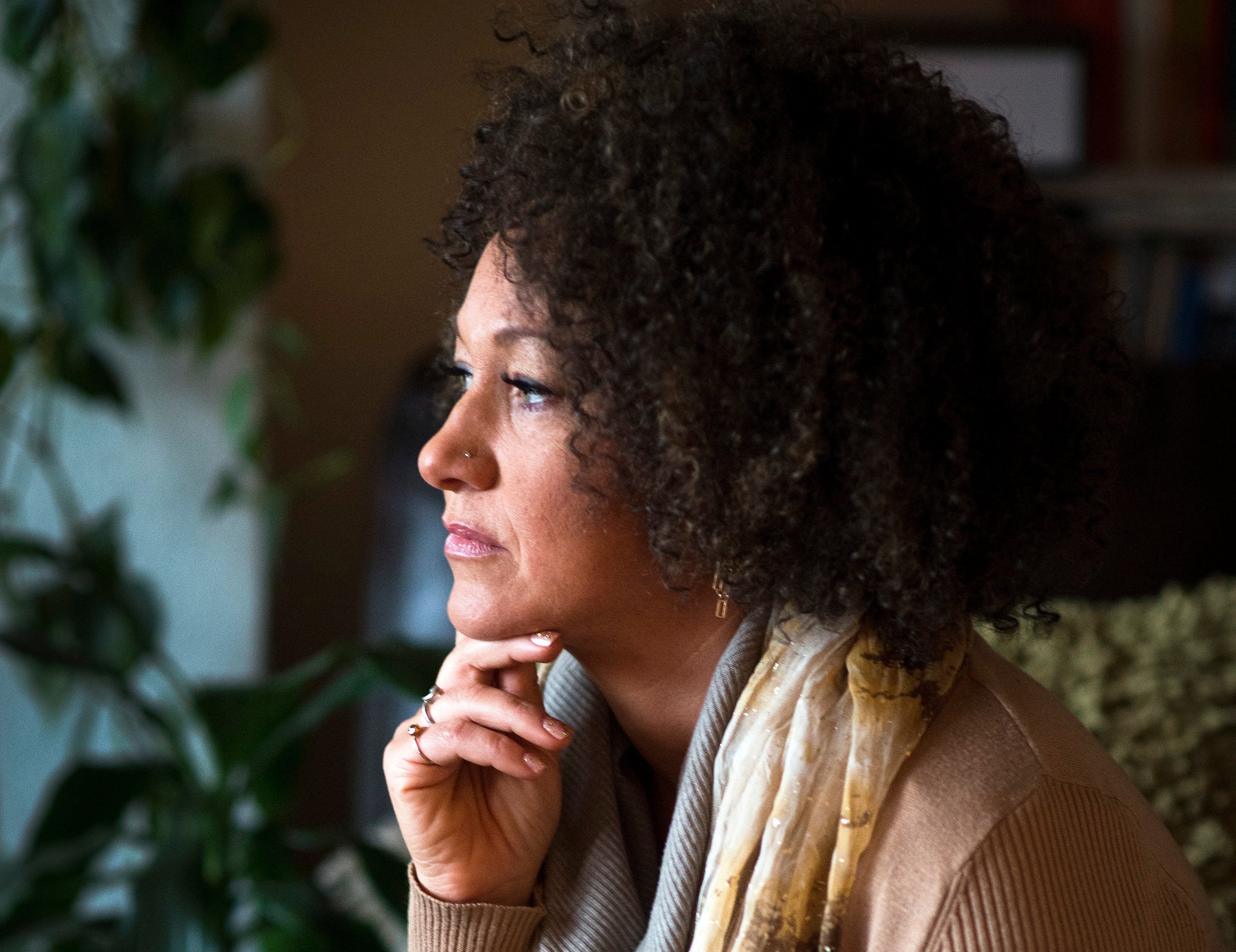
At the very start of The Rachel Divide, a Netflix documentary about Rachel Dolezal, we hear her ask “Who’s the gatekeeper for Blackness?” She soon follows with another incensing question: “Do we actually have the right to live how we feel?” Ah, a pop quiz. As for the answers, Black people are the collective gatekeepers of Blackness, and yes, Black people do have the right to tell non-Black people who exploit our identities about themselves.
Upon swiftly being barraged with Dolezal’s lingering cluelessness confirms that for many of us, The Rachel Divide is an unbearable viewing experience.
It doesn’t help that the film’s director, Laura Brownson, does try to elicit pity from those watching. To Brownson’s credit, despite my frustrations with Dolezal and overall exhaustion with her racialized scam, I take no pleasure being reintroduced to details about her troubled past. I have sympathy for anyone who grew up in an ultra-religious home that makes its inhibitors feel trapped. I understand how Dolezal having so many Black siblings subsequently pushed her into seeking an entree into Black history and culture, falling in love with both, and in doing so, created a connection that allowed her to dissociate from a familial lineage that felt, rigid, controlling, and repressive. Lastly, I can see how exploiting Dolezal’s story makes her entire character questionable — which all but ends her Black sister Esther’s push to have Dolezal’s biological brother face trial over charges of molesting her. It is indeed a frustrating casualty for a person not at all responsible for Dolezal’s actions.
However, therein lies the problem with Dolezal, from the start of her of her story to the end of the documentary it has inspired: none of it makes it okay her for her to lie.
Rachel Dolezal is a selfish person, and if her intent with this documentary was to make us forget that, she has failed miserably. Her choice to do this film only extends the life of her controversy. I don’t feel bad for her. Though, I do feel bad for her two sons, Franklin and Izaiah. Like any children who love their parent, they defend her.
At one point in the film her teenage son, Franklin, argues: “All my mom did was say that she was Black and people started losing their minds. She’s done a lot for the community. People don’t bother to recognize that, all they say is that she’s a liar.”
There is evidence to support that Dolezal did indeed advocate for Black people in Spokane, Washington during her tenure as president of the NAACP chapter of that region. Franklin goes on to express worries about his mom’s tears as she tries to sleep, which interrupts his. Still, even he admits that if his mom were going to put them all through this, he wishes she had done it when he was older. Franklin may adore and defend his mom, but he also seems to see through her. He is quite protective of her, wants to believe her, but you get the sense has picked up on her capability if not flat out compulsion for lying.
Franklin also knows Rachel “chokes on her own words” regardless if she believes in them. Later in the film, he asks her, “Why won’t you just let it go away?” He asks this while lamenting about his own troubles of living under her shadow and concerned for the new sibling his mom has given birth to. All Dolezal can say in response is, “If somebody has hope, don’t take that away from them because maybe that’s all they have.”
This isn’t about hope; this is about Rachel Dolezal being addicted to fame and the attention that comes with it. She revels in it and that is what is unspoken but all too clear to viewers.
Yes, she appears to have done great work on behalf of Black people, but she could have done that without lying about her race. As her former colleagues at that NAACP note, she not only destroyed and tainted their work and legacy, she made it harder for the next real Black woman who steps into her former role. Meanwhile, it remains unclear if the hate mail she claims was sent to her by white supremacists is real or just more trickery.
She is a damn liar; Dolezal wanted notoriety but knew she couldn’t secure it as a white woman. She is not a “pioneer” as touted by one man who appears in the film at one point. She is certainly not “Unapologetically Black” as she claims during a separate moment.
Yes, while race is a social construct, in one pivotal scene Dolezal is confronted by actual Black women, who passionately explain that no matter how Dolezal feels, she can never truly be a Black woman. (If you want to read another Black woman make this all too painfully clear to Dolezal, read Ijeoma Oluo’s 2016 interview with her.)
Let Dolezal tell it, this is all a “family feud” with Black folks and eventually we will move beyond this “misunderstanding.” Girl, you ain’t no kin to me.
I’m sorry she can’t find a job and has turned to doing hair in her kitchen to survive, but actions have consequences. If one is to stop suffering from those consequences, it requires honesty and acts of contrition. If Rachel Dolezal cannot muster the integrity to do it for real Black people or her own dignity, she should at least do it for her children — notably the teenager and newborn who have several years ahead of them under her wing. Her self-absorption, self-importance, and delusions are hurting them.
So for their sake, I hope she puts herself in rice for a spell and let them enjoy a little less attention from the mess she, a tanning booth, a couple of dozen weaves, and a vivid imagination have made.
